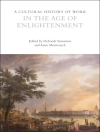From Confederation to the partial abolition of the death penalty a century later, defendants convicted of sexually motivated killings and sexually violent homicides in Canada were more likely than any other condemned criminals to be executed for their crimes. Despite the emergence of psychiatric expertise in criminal trials, moral disgust and anger proved more potent in courtrooms, the public mind, and the hearts of the bureaucrats and politicians responsible for determining the outcome of capital cases.Wherever death has been set as the ultimate criminal penalty, the poor, minority groups, and stigmatized peoples have been more likely to be accused, convicted, and executed. Although the vast majority of convicted sex killers were white, Canada’s racist notions of "the Indian mind" meant that Indigenous defendants faced the presumption of guilt. Black defendants were also subjected to discriminatory treatment, including near lynchings. In debates about capital punishment, abolitionists expressed concern that prejudices and poverty created the prospect of wrongful convictions.Unique in the ways it reveals the emotional drivers of capital punishment in delivering inequitable outcomes, The Death Penalty and Sex Murder in Canadian History provides a thorough overview of sex murder and the death penalty in Canada. It serves as an essential history and a richly documented cautionary tale for the present.
Carolyn Strange
Death Penalty and Sex Murder in Canadian History [EPUB ebook]
Death Penalty and Sex Murder in Canadian History [EPUB ebook]
Compre este e-book e ganhe mais 1 GRÁTIS!
Língua Inglês ● Formato EPUB ● Páginas 384 ● ISBN 9781487538118 ● Editora University of Toronto Press, Scholarly Publishing Division ● Publicado 2020 ● Carregável 3 vezes ● Moeda EUR ● ID 8120862 ● Proteção contra cópia Adobe DRM
Requer um leitor de ebook capaz de DRM












